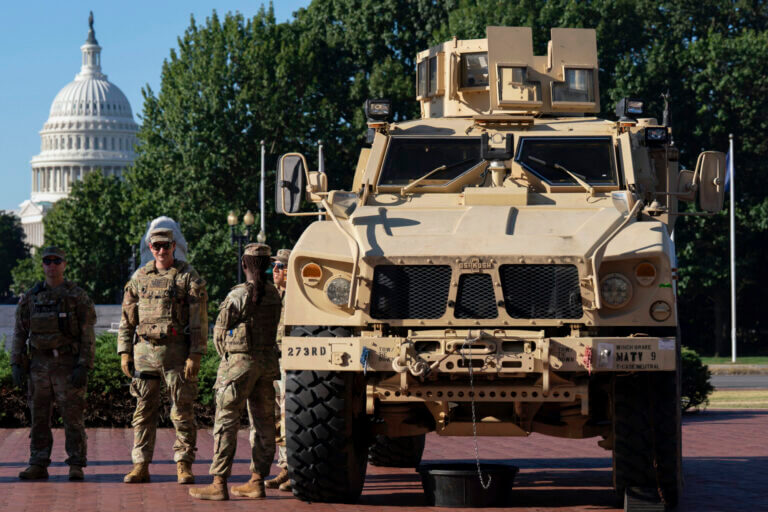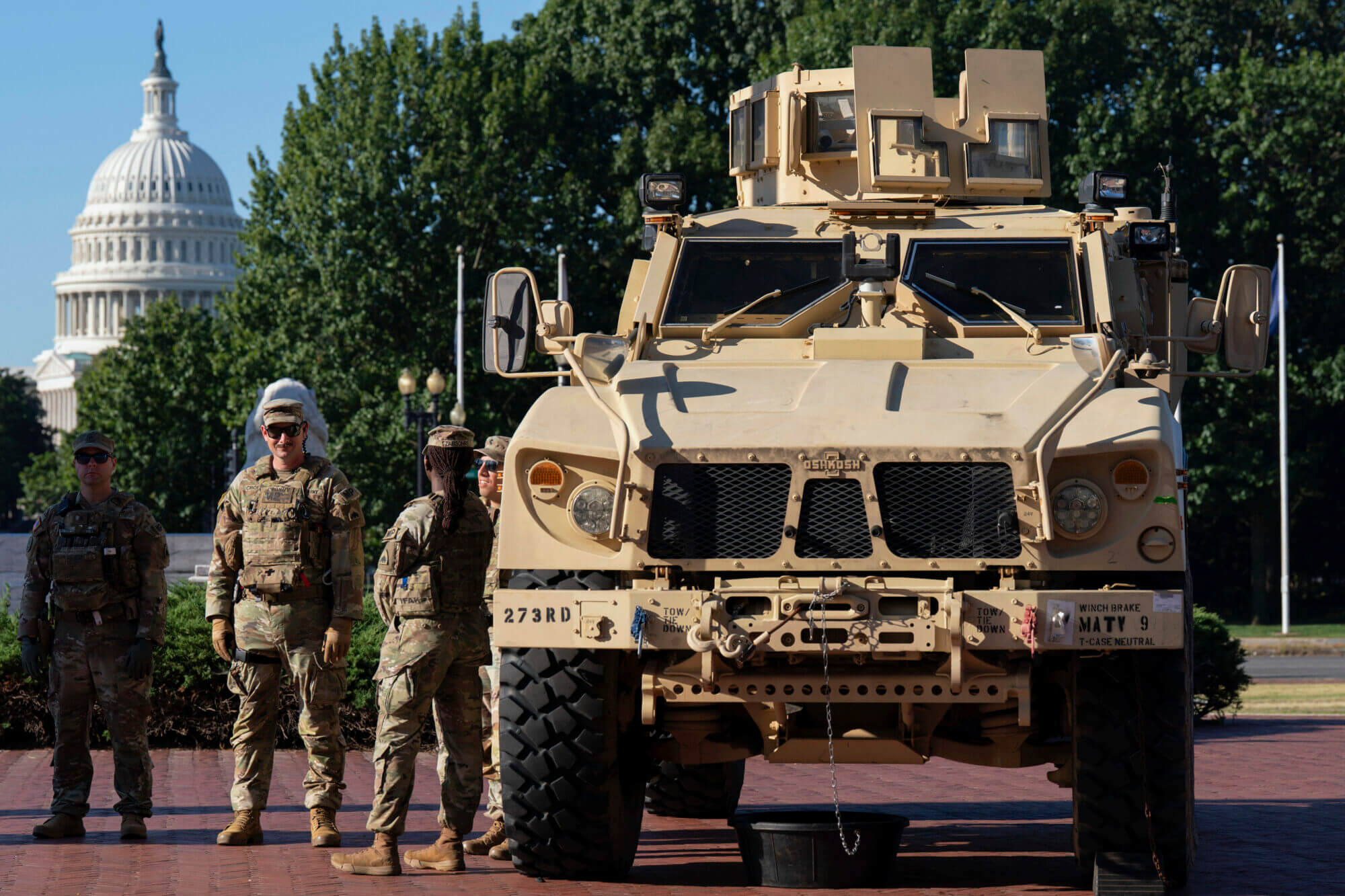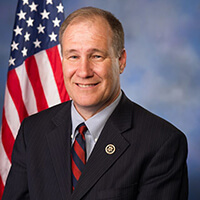

WASHINGTON — U.S. Rep. Trent Kelly, a retired Mississippi National Guard officer, is supporting President Donald Trump’s efforts to mobilize National Guard troops to Washington and other cities around the country to crack down on crime.
Kelly, a Republican who has represented northeast Mississippi in Congress since 2015, said about 200 members of the Mississippi National Guard are still in the nation’s capital, and he believes the troops have sufficient training to aid law enforcement officers in the city.
“It’s part of our civil response,” Kelly said of the Guard. “We know how to do that mission. They’re not law enforcement. They know what they can and can’t do. They’re supporting law enforcement.”
The president has threatened to send troops to other cities he believes have problems with violent crime. Opponents of this policy say the use of federal troops for domestic law enforcement violates federal law and usurps individual states’ sovereignty.
Kelly, a Saltillo resident, first joined the National Guard at the age of 19 in 1985. He mobilized for Operation Desert Storm in 1990 and deployed to Iraq in 2005 and 2009.
In 2018, Kelly was promoted to the rank of brigadier general. In 2020, he was promoted to major general and designated as the state’s assistant adjutant general. Earlier this year, he retired from the Guard. During his tenure in the Guard, he was one of the highest-ranking members of the military serving in Congress.
He told Mississippi Today in an interview at his Capitol office that he has met with about 15 members of the Mississippi unit in Washington, and all of them said they were enjoying their assignment.

“They were on their off time,” Kelly said. “They came by, and we gave them a Capitol tour. It was informal.”
Following the governors of at least three other Republican-led states, Gov. Tate Reeves last month announced he was deploying Mississippi National Guard troops to Washington to bolster Trump’s “effort to return law and order to our nation’s capital.”
The move comes after Trump signed an executive order federalizing local police forces and activating about 800 District of Columbia National Guard members. Washington’s elected officials and several Democratic lawmakers have disputed these claims, noting that violent crime is lower than it was during Trump’s first term in office.
After he mobilized the National Guard in Washington, Trump deployed troops to Memphis, with the support of Tennessee’s Republican governor and U.S. Senators. The president has also suggested sending troops to Chicago, St. Louis and New Orleans.
State leaders have speculated whether Reeves or Trump would send Guard troops to deal with crime in Mississippi’s capital city. White House Press Secretary Karoline Leavitt, in a media briefing earlier this month, called Jackson a “Democrat-run city” in a conservative state and labelled it a “sanctuary city.”
“While Jackson is not formally a sanctuary city, the state of Mississippi formally banned sanctuary cities, and this city has acted as a de facto sanctuary city for criminals and illegal aliens since 2017,” Leavitt said.
But Reeves’ office, in a social media post, said he has not deployed the Guard to Jackson because he has previously worked with the state Legislature to expand the role of the Capitol Police force in the area and has signed legislation into law creating the Capitol Complex Improvement District Court, a state-created inferior court in the state’s capital city.
“The Governor’s holistic approach to fight crime in Jackson — admittedly using tools not available to the President — is working,” Reeves’ office said.
U.S. Rep. Mike Ezell, a Republican who represents South Mississippi and a former sheriff, also said the president’s use of the Guard is a “good strategy” because the mere appearance of military members could be a deterrent for crime.
“I’ll tell you from my own personal experience being a sheriff, being chief of police, if you have a crime problem, and think about what you hear from the police chiefs and the sheriffs,” Ezell said. “‘We don’t have enough manpower. We don’t have enough manpower.’ We hear that. We’ve heard that forever.”
However, not all members of the Mississippi delegation are in favor of the policy. U.S. Rep. Bennie Thompson, the lone Democrat from the Mississippi delegation who represents the Delta, said in an August news release that deploying the Guard was a “power grab” by Trump, “trying to crown himself king.”
“Washington, D.C., needed the National Guard deployed on Jan. 6th, when Trump supporters stormed the Capitol, but he did nothing,” Thompson said. “Now, Donald Trump has chosen to unleash federal power against a community that didn’t vote for him, proving once again that his priorities are political vengeance and self-promotion.”
While the congressional debate in Congress continues over the policy, the courts are also weighing in.
A federal judge in California ruled earlier this month that the Trump administration broke the law by deploying National Guard troops in Los Angeles during the summer. The Trump administration is appealing the ruling.
- Former Greenwood police officer pleads guilty to federal drug trafficking charges - February 27, 2026
- UMMC officials say normal operations will resume Monday after cyberattack - February 27, 2026
- Hinds County public defender: Office needs additional funding to avert constitutional crisis - February 27, 2026